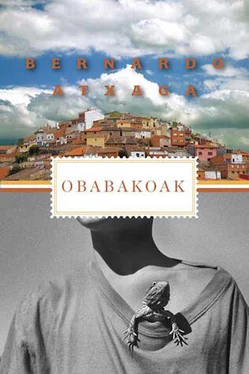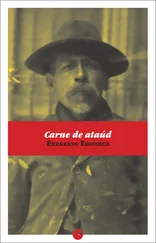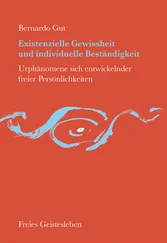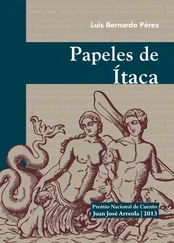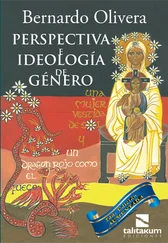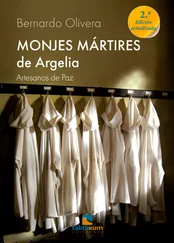Bernardo Atxaga - Obabakoak
Здесь есть возможность читать онлайн «Bernardo Atxaga - Obabakoak» весь текст электронной книги совершенно бесплатно (целиком полную версию без сокращений). В некоторых случаях можно слушать аудио, скачать через торрент в формате fb2 и присутствует краткое содержание. Год выпуска: 2010, Издательство: Graywolf Press, Жанр: Современная проза, на английском языке. Описание произведения, (предисловие) а так же отзывы посетителей доступны на портале библиотеки ЛибКат.
- Название:Obabakoak
- Автор:
- Издательство:Graywolf Press
- Жанр:
- Год:2010
- ISBN:нет данных
- Рейтинг книги:3 / 5. Голосов: 1
-
Избранное:Добавить в избранное
- Отзывы:
-
Ваша оценка:
- 60
- 1
- 2
- 3
- 4
- 5
Obabakoak: краткое содержание, описание и аннотация
Предлагаем к чтению аннотацию, описание, краткое содержание или предисловие (зависит от того, что написал сам автор книги «Obabakoak»). Если вы не нашли необходимую информацию о книге — напишите в комментариях, мы постараемся отыскать её.
Obabakoak
The Observer
Obabakoak — читать онлайн бесплатно полную книгу (весь текст) целиком
Ниже представлен текст книги, разбитый по страницам. Система сохранения места последней прочитанной страницы, позволяет с удобством читать онлайн бесплатно книгу «Obabakoak», без необходимости каждый раз заново искать на чём Вы остановились. Поставьте закладку, и сможете в любой момент перейти на страницу, на которой закончили чтение.
Интервал:
Закладка:
And that’s why I started going out. You see, my uncle wouldn’t give up, he kept going on about the newspaper, which I found both objectionable and in bad taste. So I’d go out instead and meet up with Albino María, spend all day with him and go back to his house to sleep, because there are lots of beds in Albino María’s house, at least ten.
Then one day my uncle got really angry with me and he phoned my friend, the doctor I mean, and the two of them got ahold of me and bundled me into a car. Then we drove and drove until at last we came to a big house, and all the people there were dressed in white. In fact everything in the house was very white, it was almost frightening. And then they led me to a room lined with cork and my uncle said: Forgive me, Nephew, but it’s for your own good. Putting it in terms that you can understand, what’s happened is that a lizard has gotten inside your head. And we have to get rid of that lizard, because it’s making you very ill.
A lizard making me ill? I replied. That’s not possible, Uncle. Lizards are so lovely and green. But I regretted my words the moment they were out of my mouth. I mean I saw the tears in my uncle’s eyes.
Then my friend said to my uncle: I’m more to blame than you are. I didn’t realize he was being serious, I thought the business about Ismael was just another of his literary games, a bit like playing at being detectives. And, like a fool, I went along with it.
My dear friend, I said, you’re not a fool. Anyway, as far as I’m concerned, you can leave the lizard where it is. It doesn’t bother me. And we chatted on like that for a while and then they shaved off my hair and they hurt me, hurt me really badly. I mean they clamped some iron things on my head and I screamed blue murder.
That was five days ago, I think, yes, five days and the three of us were happy as larks afterward. I mean the pain stopped and we all felt really glad, especially my uncle. You’re your old self again, he cried. And then, even more loudly, he said: The torch burns as long as the flame lives! The fact is he was behaving like a madman.
But now we’re back again to how it was before. My uncle isn’t happy anymore. Yesterday he came to me and said: “Nephew, write down what you told me about Joubert, make that your final text. And do it as soon as possible, because you’re dying.”
“Me? Dying?” I replied. “What do you mean? I think you’re wrong about that, Uncle.”
“What I mean is that before, your head was like a flaming torch,” explained my uncle, “but that torch is burning lower by the minute.”
I didn’t say anything at the time but I really think my uncle is going mad. My head has always been round, it’s never been anything like a torch. And anyway I can’t remember a thing about this Joubert person and I don’t know what to write. I get bored sitting here in the library. Just as well there are some flies in here. I mean later on I can go fishing with Albino María and they’ll come in really handy then, these flies I’m catching now.
By way of an autobiography
I’VE HEARD IT SAID THAT, like folk tales, the Game of the Goose represents a particular view of life, that it is a description of the tasks and the days we are allotted on this earth, a description and a metaphor.
What this view of life is can be seen by anyone familiar with the board and the rules of the game, for both the board and the rules show that, basically, life is a journey full of difficulties in which Chance and Free Will intervene in equal measure, a journey in which, despite those difficulties, and as long as the dice — or the fates — fall pretty much in our favor, it is possible to advance and safely reach that final pond where the Great Mother Goose awaits us.
The player just setting out on his journey can hope for nothing better than for his counter to land on one of the squares bearing a goose, because that player can then jump from goose to goose and so keep advancing.
There is nothing worse, on the other hand, than to land on squares like number forty-two, the maze, or fifty-two, the prison, or fifty-eight, bearing a skull. Landing on any of those squares means a delay or even the postponement or abandonment of the journey.
I should say, in passing, that it is not insignificant that the game metaphor of which I speak revolves around the goose and not some other animal. And that’s because the goose can walk on the earth, swim in water, and fly through the air, which is why tradition has chosen it to symbolize wisdom, accomplishment, perfection.
The message of the game, therefore, is at once simple and difficult to grasp. It is to do things as well as possible, day by day, goose by goose; only such continuity can guarantee ultimate wisdom and perfection.
But let’s go back to the beginning and remember that the Game of the Goose can also be the description of a life, for example, the life of a Basque writer born in 1951.
And, of course, one notices coincidences the moment one looks at the board. Because a modern-day Basque writer, that is, a writer who began writing in euskera sometime in the seventies, bears a striking resemblance to that adolescent who appears on the first of the sixty-three squares on the board and who has as his only baggage a bundle.
Those of us who are just beginning to be translated into other languages, set off with very little baggage. We looked into our bundle and found only five, at most ten, books written in the language we were trying to write in. I read Gabriel Aresti when I was twenty; three years later, by the time I was twenty-three, I had read all the Basque literature that the dictator had not managed to burn.
This does not mean — as has so often been said — that we had no tradition, unless one is using the word tradition in some ancient, obsolete sense. Because, as we know, nowadays, in the middle of the twentieth century — and this is one of the characteristics of the modern age — the whole of the literary past, be it from Arabia, China, or Europe is at our disposal; in shops, in libraries, everywhere. Thus any writer is free to create his own tradition. He can read The Arabian Nights one day and Moby Dick or Kafka’s Metamorphosis the next… and those works, the spirit that they communicate, will immediately pass into his own life and work as a writer.
These days nothing can be said to be peculiar to one place or person. The world is everywhere and Euskal Herria is no longer just Euskal Herria but — as Celso Emilo Ferreiro would have said—“the place where the world takes the name of Euskal Herria.”
So I would never say that we present-day Basque writers lack a tradition; I would say that what we lacked was an antecedent, that we lacked books from which we could learn to write in our own language. Tom Thumb never passed our way and so we had no trail of bread crumbs to lead us back home.
This is a matter of some importance, and one which, as many will have guessed, has to do with literary language. Because, naturally, to write is an artificial act and that artifice, which is literary language, is something that develops over time and through the labors of many people, adapting itself to the expressive needs of each age.
One of the consequences of those labors is, to give one example, the invisibility of certain words. When a reader reads a novel with a lot of dialogue, he probably doesn’t even see the constant repetition in the text of “he said,” “he replied,” and “he retorted.” The words are there but the same thing happens with them as happens with the trees on his favorite walk: He has read the words so many times, he doesn’t even notice them.
Writing in euskera, I have no problems with “he said” ( esan ) or with “he replied” ( erantzun ) but I begin to have problems with “he retorted” ( arrapostu ) because this word is not familiar to the reader, because it’s a tree he recognizes but that, nonetheless, he has never seen on this particular walk. So the Basque writer knows that his reader will stop at that word, that it will be a stumbling block.
Читать дальшеИнтервал:
Закладка:
Похожие книги на «Obabakoak»
Представляем Вашему вниманию похожие книги на «Obabakoak» списком для выбора. Мы отобрали схожую по названию и смыслу литературу в надежде предоставить читателям больше вариантов отыскать новые, интересные, ещё непрочитанные произведения.
Обсуждение, отзывы о книге «Obabakoak» и просто собственные мнения читателей. Оставьте ваши комментарии, напишите, что Вы думаете о произведении, его смысле или главных героях. Укажите что конкретно понравилось, а что нет, и почему Вы так считаете.
